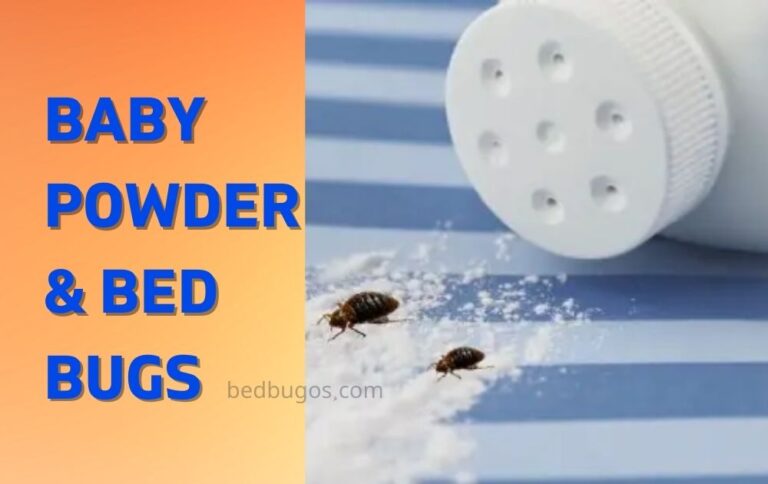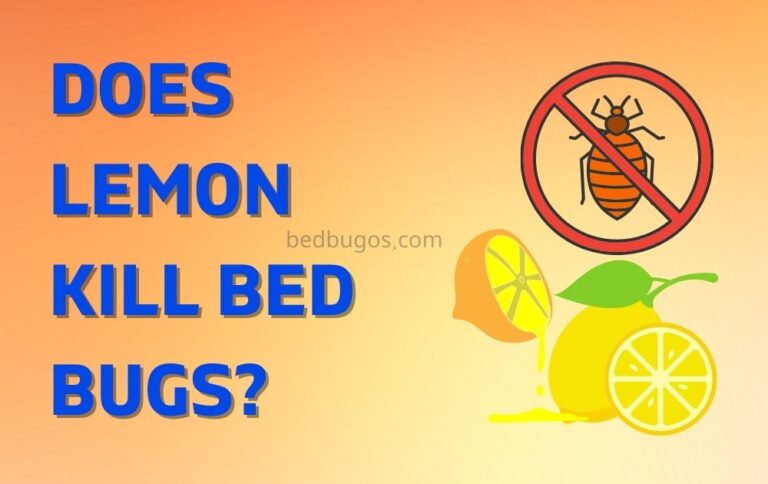Does Lavender Repel Bed Bugs? Let’s Find Out The Truth!

Lavender, known for its natural insect-repelling properties, has gained popularity as a potential solution for repelling bed bugs. In this article, we will explore the question: Does Lavender Repel Bed Bugs? While some studies suggest that lavender oil can effectively repel various insects, including bed bugs, the exact mechanism behind its insect-repellent properties remains unclear. It is believed that the chemical compounds present in lavender oil play a role in repelling insects.
To harness lavender as a natural bed bug repellent, there are several methods you can try. One option is to place lavender sachets or dried lavender in your bedding or use a lavender-scented linen spray on your sheets. Alternatively, you can diffuse lavender oil in your bedroom or directly apply a few drops of the oil to your skin as a natural bug-repellent.
Lavender’s repellent effect on bed bugs is limited. While the scent of lavender may deter bed bugs temporarily, it’s not a foolproof solution for eradicating infestations. Professional extermination and preventive measures such as vacuuming, sealing cracks, and using mattress encasements are more effective for controlling bed bugs.
Why do Bed Bugs Don’t Like Lavender?
Bed bugs may not like lavender for a number of reasons.
- One theory is that the chemical compounds found in lavender oil, such as linalool and linalyl acetate, may repel bed bugs and other insects. These compounds are known for their insecticidal properties, and they may help to keep bed bugs at bay.
- Another reason bed bugs may not like lavender is because of its strong, distinctive scent. Some people believe that the strong aroma of lavender can help to mask the scent of humans, making it more difficult for bed bugs to locate their hosts.
- Additionally, some people believe that the relaxing and calming properties of lavender may help to create a more peaceful and harmonious environment, which may be less attractive to bed bugs.
- Overall, while lavender may not completely eliminate a bed bug infestation on its own, it can be a useful tool in helping to repel these pests and create a less inviting environment for them to thrive.
Can I Use Lavender-Scented Candles To Eliminate Bed Bugs?
While lavender-scented candles may help to create a pleasant and relaxing atmosphere in your home, it is unlikely that they will be effective at eliminating a bed bug infestation. While lavender has natural insect-repelling properties and may help to keep bed bugs at bay, it is not a strong enough deterrent to completely eliminate a bed bug infestation on its own.
Steps to Make Lavender Oil Spray?
If you want to make a lavender oil spray to help repel bed bugs at home, here are the steps you can follow:
- Gather your supplies: You will need a small spray bottle, carrier oil (such as olive oil or jojoba oil), and lavender essential oil.
- Mix the oils: In the spray bottle, combine 1 cup of carrier oil with 20-30 drops of lavender essential oil. Shake the bottle well to mix the oils together.
- Test the spray: Before using the spray on your bedding, it’s a good idea to test it on a small, inconspicuous area to make sure it won’t cause any staining or damage.
- Spray the mixture: Once you have tested the spray and determined that it is safe to use, spray a light mist over your bedding and in any other areas where you have noticed bed bugs. Be sure to get into all the cracks and crevices where the bed bugs may be hiding.
- Reapply as needed: You may need to reapply the lavender oil spray every few days to maintain its effectiveness.
Remember, while lavender oil may help to repel bed bugs, it is not a foolproof method for eliminating a bed bug infestation. If you have a serious bed bug problem, it’s important to consult a professional pest control company like BugWide to properly identify and eliminate the source of the infestation.
What Other Essential Oils Could I Use? Apart From Lavender Oil
In addition to lavender oil, there are several other essential oils that may be effective at repelling bed bugs and other pests. Some options to consider include:
- Tea tree oil: Tea tree oil is known for its powerful antifungal and antibacterial properties, and it may also be effective at repelling bed bugs.
- Peppermint oil: Peppermint oil has a strong, refreshing scent that may help to keep bed bugs at bay. It is also a natural insect repellent and may help to deter other pests as well.
- Eucalyptus oil: Eucalyptus oil has a strong, refreshing scent that may help to repel bed bugs and other insects. It is also known for its natural antifungal and antibacterial properties.
- Lemon oil: Lemon oil has a refreshing, citrus scent that may help to keep bed bugs and other pests at bay. Lemon juice is also a natural disinfectant and may help to eliminate odors.
- Clove oil: Clove oil has a strong, spicy scent that may help to repel bed bugs and other pests. It is also known for its natural antiviral and antibacterial properties.
How to Apply Lavender Oil To Kill Bed Bugs?
Are you tired of dealing with pesky bed bugs? Lavender oil may be the solution you’ve been looking for! Not only is it a natural, non-toxic option, but it also has a pleasant aroma. Here’s how to apply lavender oil to kill bed bugs:
- Purchase a bottle of pure lavender essential oil. You can find this at a natural health store or online.
- Dilute the oil with a carrier oil, such as almond or coconut oil, in a 1:1 ratio. This will help the lavender oil spread more evenly and prevent skin irritation.
- Using a cotton swab or cotton balls, apply the lavender oil mixture to areas where you have noticed bed bug activity, such as in the seams of your mattress, in crevices of your bed frame, and around the edges of your room.
- Repeat the application every few days for several weeks to ensure that all bed bugs are eliminated.
- In addition to applying lavender oil directly, you can also use it in a diffuser to help repel bed bugs and create a relaxing atmosphere in your bedroom.
By following these simple steps, you can effectively use lavender oil to kill bed bugs and enjoy a peaceful, bug-free sleep. Good luck!
FAQs
Lavender can be used as a supplemental measure alongside other methods, such as professional extermination, vacuuming, and sealing cracks, to enhance bed bug control. However, it should not be relied upon as the primary solution.
While lavender-scented Febreze may have a pleasant aroma and help to mask the scent of carbon dioxide, which bed bugs use to locate their hosts, it is not likely to kill bed bugs on its own. Using lavender-scented Febreze as a standalone solution is not likely to be sufficient to completely eradicate the infestation.
The primary limitation is the limited scientific evidence on lavender’s efficacy against bed bugs. Additionally, relying solely on lavender may delay or hinder effective bed bug control, leading to further infestation.
Lavender can be used in various forms such as essential oil, sachets, or sprays. However, its effectiveness in repelling bed bugs is not guaranteed.
No, bed bugs do not like the smell of lavender. The scent of lavender is known to have a repellent effect on bed bugs, making them less likely to approach areas with a strong lavender fragrance. However, it’s important to note that the repellent effect is limited, and professional extermination and preventive measures are still necessary for effective bed bug control.
Conclusion
Lavender may have some potential as a natural bed bug repellent. While there is limited scientific research on the effectiveness of lavender specifically for repelling bed bugs, the plant’s strong aroma and natural insecticidal properties may make it a useful tool in your bed bug prevention efforts. However, it’s important to note that lavender should not be relied upon as a sole means of bed bug control. Instead, it may be helpful to use it in conjunction with other proven methods, such as regularly washing and drying bedding on high heat, sealing up cracks and crevices, and using specially-formulated bed bug sprays and traps. By taking a comprehensive approach to bed bug prevention, you can help protect your home and loved ones from these pesky pests.

![Does Zevo Kill Bed Bugs? [Explained]](https://lyssfits.com/wp-content/uploads/2023/02/Does-Zevo-Kill-Bed-Bugs--768x484.jpg)

![Does Baking Soda Kill Bed Bugs? [Explained]](https://lyssfits.com/wp-content/uploads/2023/07/Does-Baking-Soda-Kill-Bed-Bugs-768x484.png)


